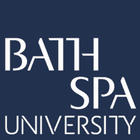About MA Education (early Childhood Studies) in Bath Spa University
Early childhood education is recognised globally as being crucial for laying the foundations for lifelong learning and development, as critical aspects of social, emotional and cognitive development are established in a child’s early years.
During the course, you’ll develop your knowledge and understanding of how children develop and learn in social and cultural contexts. You’ll be introduced to different pedagogical approaches, including international perspectives, that will encompass a critical analysis of the cultural construction of childhood.
This Master's in early childhood education incorporates modules that will enhance your understanding and insights into developing quality educational provision for young children.
You’ll gain a deep insight into education. We’ll teach you to question:
- The nature of learning and teaching is in different countries and cultures
- The relationship between education and the economy
- How education is changing as it becomes marketed
- How education systems are managed
- Who takes decisions about the curriculum and teaching
- How far governments go (and how far they should go) to control education
- What the role of professional educator is
- The role schools and universities may take on in the future
- The role of education in the knowledge economy
- Whether education is becoming an instrument of capitalism.
Careers
Governments worldwide are now making early childhood education a priority and increasing their investment in provision for young children. You’ll acquire specialist expertise in an area of education that is rapidly expanding and opening up new career opportunities.
Academic qualification equivalents
- Normally a Bachelor's degree with honours and a good passing grade from an internationally recognised university or Higher Education institution
- Other international qualifications to an equivalent standard will also be considered.
English language requirements (one of the below):
- IELTS: Academic 6.5 or 7.0 This must include a minimum of 5.5 in Listening, Speaking, Reading and Writing.
- TOEFL iBT: This must include a total of 75, to include a minimum 18 in Reading, 17 in Listening, 20 in Speaking, and 17 in Writing.
- PTE: This must include a minimum of 67 in Listening, Speaking, Reading and Writing.
Bath Spa University Highlights
| Type |
Public |
| Campus Setting |
Urban |
| Tuition Fees for International Students (full-time degrees in 2020-2021) |
13,700 GBP - 15,300 GBP (varies with the courses) |
| Campus Housing Capacity |
25% |
| Student Retention Rate |
89% |
| Scholarship Availability |
Yes |
| Applications Accepted |
Online |
| Work-Study |
Available |
| Intake Type |
Yearly |
| Mode of Program |
Full time and part-time |
Bath Spa University Average Tuition Fees And Other Expenses
International students joining the Bath Spa University are required to pay 70% of the tuition fees on or before arrival and commencement of the course. All payments should be made in £ sterling and the easiest way to make a payment is via Flywire. However, the payment can also be made through credit/debit card.
International students should open a UK bank account as soon as possible after arrival.
The estimated cost of attendance depends on several factors like the program applied for, tuition, books, fees, housing, dining, and personal items.
| Expenses In GBP |
Undergraduate (per annum) |
Graduate (per annum) |
| Tuition Fee for International Students (full-time courses) |
13,700- 15,300 (varies with the field of study chosen) |
13,700- 15,300 (varies with the field of study chosen) |
| Career and Professional Development Fees |
145 |
145 |
| Housing and Rooms |
8,412 |
8,412 |
| Health Insurance |
150 |
150 |
| Books and Supplies |
500 |
500 |
| Meals |
3,225 |
3,225 |
| Personal Expenses |
792 |
792 |
